The Last Word - Creative NZ's Stephen Wainwright Exit Interview
The state of the sector, funding sagas, proudest moments, biggest regrets, controversy, abuse and CNZ's future - a wide-ranging, comprehensive insight from the departing Chief Executive.
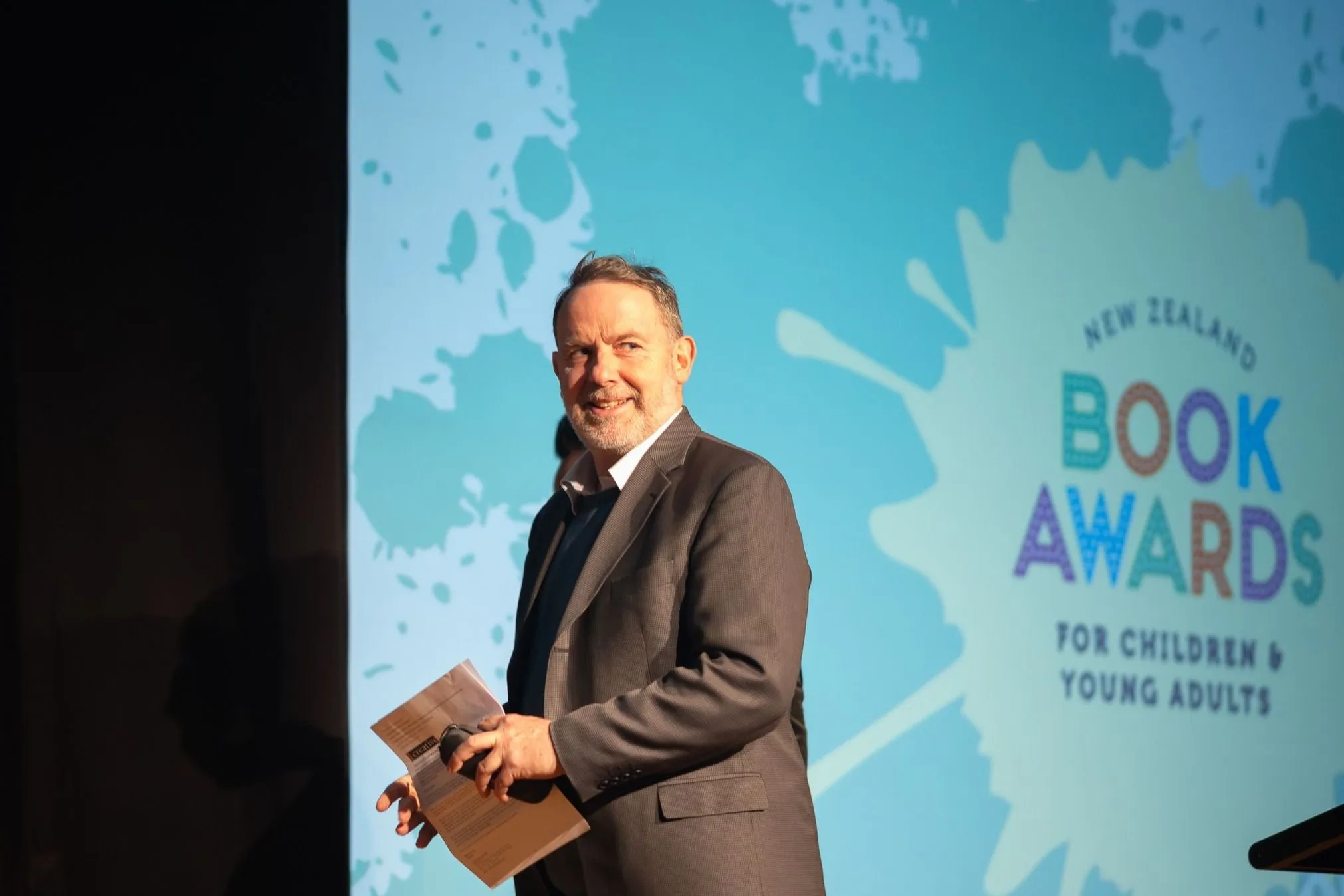
For the first time in 35 years - Stephen Wainwright has woken up and won't be starting another working week at Creative New Zealand.
After one of the longest tenures imaginable, the now-former Chief Executive of the most talked about organisation in the arts sector has finally completed his long goodbye.
It all ended rather low key - a Thursday board meeting before a last farewell with colleagues, sandwiched between the Easter and ANZAC public holiday long weekends. No big address, no mention on the CNZ website or social platforms. Just the way Wainwright wanted it.
Speaking to The Big Idea in one of his final acts before "downing the tools", Wainwright noted "I'm sure that I haven't fully come to terms with the fact everything will be different. You know, when you've got the pattern of your life that's been going for 35 years - to let go of that is quite a lot.
"But I'm certainly a fair way around the old grief cycle towards acceptance and I'm really actually excited about the next phase of life for me."
It hasn't been your usual exit. In fact, the nature of his final period as CE has drawn more raised eyebrows than the original announcement itself, which was announced in October 2023 - that's a gap of 541 days.
Wainwright laughed in agreement at the comparison to running longer than most aging rockers farewell tours, after being asked to stay in the role until the then-new Arts Council Chair Kent Gardner had his feet under the table before securing his replacement.
"In life, things don't always unfold exactly as you imagined they were going to - but it's all been a good tidy, albeit slow process
"There has been a bit of explaining with people asking 'oh, you still in there?" I'd say 'yeah, I'm still here but I'm going so don't worry'.
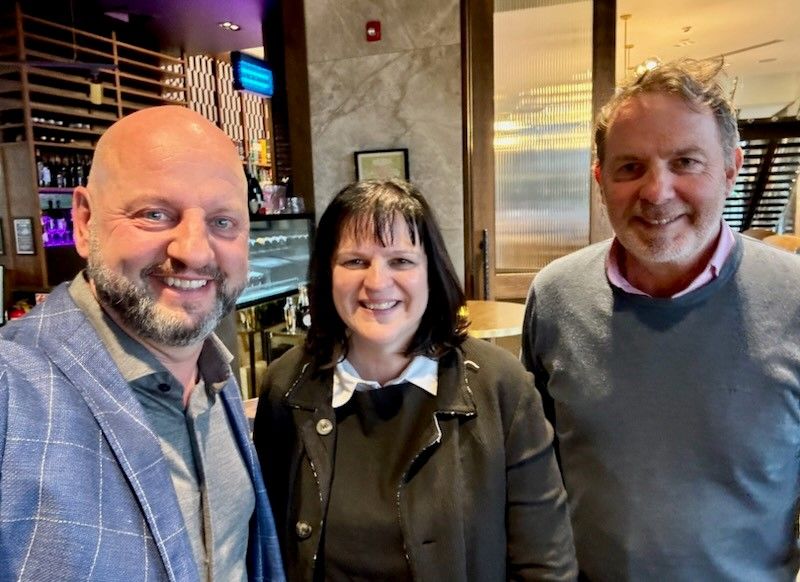
"I'm really delighted that my successor is Gretchen La Roche, in whom I have enormous confidence and that her and Kent will make a terrific team and take the organisation through whatever comes its way over the next period."
The hard calls
Wainwright knows he's a polarising figure in the creative sector - it comes with the territory when you have the hand on the rudder of CNZ for the best part of 19 years, where funding dollars can never meet the demand of funding requests.
Wainwright accepts that has meant putting more than a few noses out of joint.
"Well, I've delivered the tough news on many, many occasions. It's not a pleasant thing to do but it is a necessary thing to do - so you try to do it with as much kindness and humanity as you can.
"But you also know that if you have a system which is only about the same organisations or people getting the same resources without refreshing that, the system kind of ossifies.
"The thing in our world, as you well know, there's never a shortage of talent and you've got to work very hard to keep opening the door to people with talent -and we don't always get that right.
"It's a very difficult balancing act and a lot of people have got lots of points of view - probably like when the All Black team's picked, we think you picked the wrong ones - and that's the nature of of being a public organisation."
He then hints at the personal toll such a position can take.
"You get lots of feedback - some of it crosses a line into abuse, some of it's fair enough. Everyone's allowed their perspective and in fact, it's our job to make those decisions. As much as it's really challenging for people who put forward proposals - they put tons and tons of effort to get an outcome, which is like, 'sorry, not this time' - it's also bruising on on the people who have to be the bearers of bad news.
"I'm not going to miss that hugely, to be honest."
State of the sector
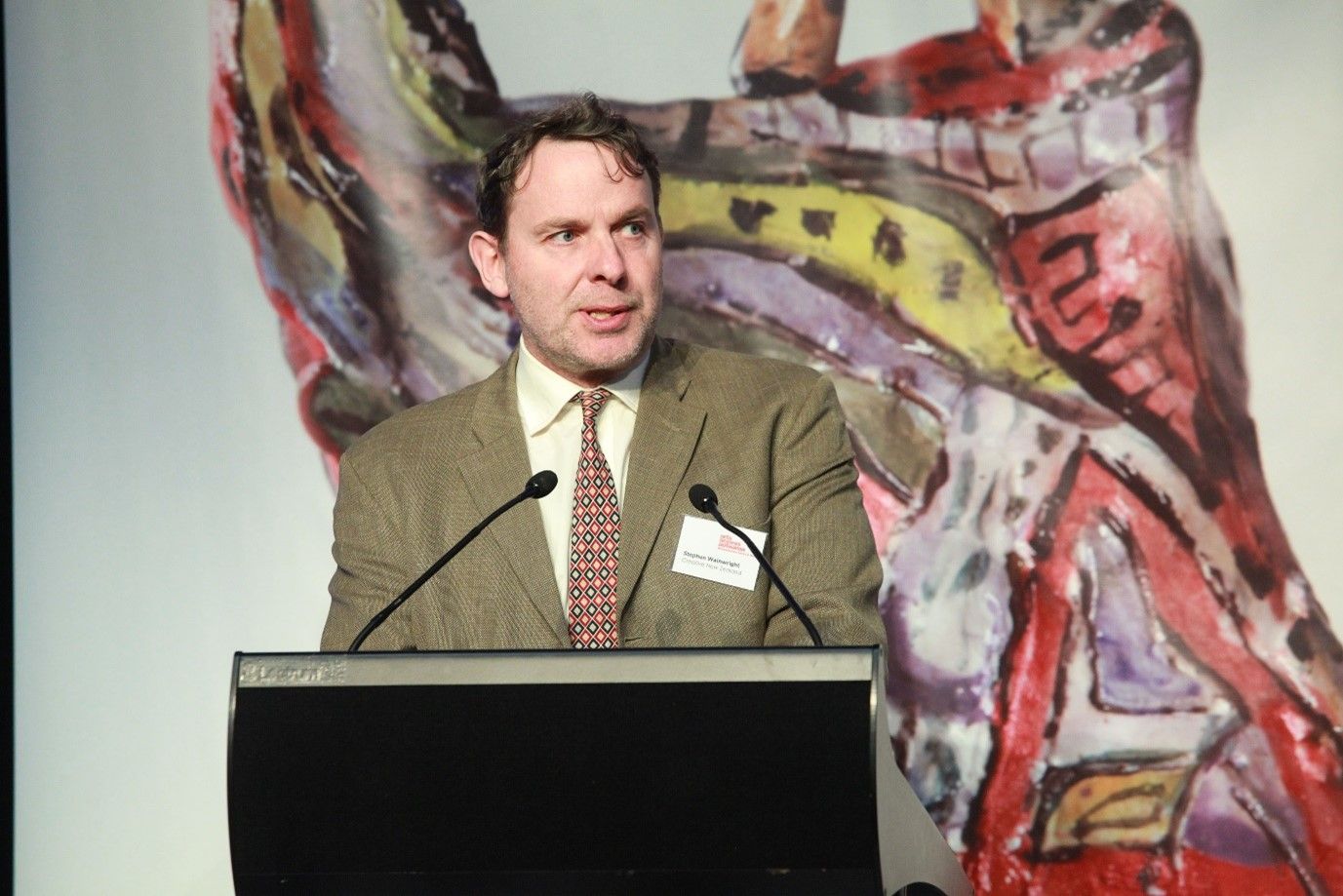
No matter what you think of Wainwright's tenure, no one can deny it's been an extraordinary one. Dating back to 1990 - with more than half of his time with CNZ being in the hot-seat since 2006 - Wainwright has been around long enough to gain plenty of insights on the sector.
"Some things I think seem to be relatively constant," he muses. "One of those things is arts, culture and creativity tends to be on the margins of political interest. So it's always a hard road to attract resources from either central or local government - that hasn't changed, particularly.
"If I look at the what the research says, New Zealanders are about the most highly engaged with the arts of any nation's people that I'm aware of. So even though we might struggle for the kind of attention that we want politically, when it comes to habits and practices and interests of people - arts, culture and creativity, you know, has been incrementally rising for quite a long time now. That’s very encouraging.
"Our specific context in Aotearoa in the last few years has thrown out particular challenges with the cost of living issues, with audiences only now coming back to pre-COVID levels and the enduring challenge of the industry really rewarding practitioners for their professional efforts at an appropriate level."
The funding saga
Another unquestionable fact is that CNZ come to a crossroads with its funding model.
It blew up the old capped arts grant system that was receiving near universal distain to instigate the new eight-pronged For The Arts funding system, as well as the announcement that long-term Tōtara and Kahikatea funding models are being disestablished.
They've generally been met with 'a step in the right direction' mentality but there are still question marks and teething problems in the eyes of some artists.
The Big Idea asked Wainwright about the decision to change the funding models and if it was one that should have been made earlier.
Wainwright highlights the importance of context - not for the last time in this near-hour long interview.
"When the Crown invested all the extra money into COVID and then stopped investing it, the balance between the supply and demand and our funding changed completely. The number of proposals we were receiving, the success rates - they all changed very quickly.
"We could have changed (the arts grants model) in 2019 but I think that things were at a simmer at that point. They certainly became much hotter because of people's dissatisfaction with some of the decisions that we had made to manage the process. I'm talking about putting caps on the number of proposals and so on and so forth."
Wainwright reiterates the reasoning for what become a grossly unpopular 250 application cap was resourcing restraints - the more applications processed, the less money can be put directly in the hands of practitioners.
"But nevertheless, as somebody once said to me, one of the key things every organisation has got to do is hear the baby cry. I don't mean that a condescending way, I mean that you've got to respond when there's lots of noise.
"When we had those 30 meetings around the country (in 2023) to talk to the community, we got a very clear understanding of what the pain points were for the community and as far as we could, we tried to mitigate or indeed eradicate those with the new funding system.
"We've succeeded with some of those, but there's always pros and cons of any system.
"Now we've got a system where, in some cases, we're only supporting one of ten applicants, which is a much lower success rate than we've ever had in the past. So I guess we'll have a fresh look at that because it's a concern that there's so much effort from the community and from us that's essentially going into looking at things that we're unable to support.
"We have to continually seek new answers and work with the community on them so we can move forward with mutual benefit, that's the ultimate goal, isn't it."
Points of pride
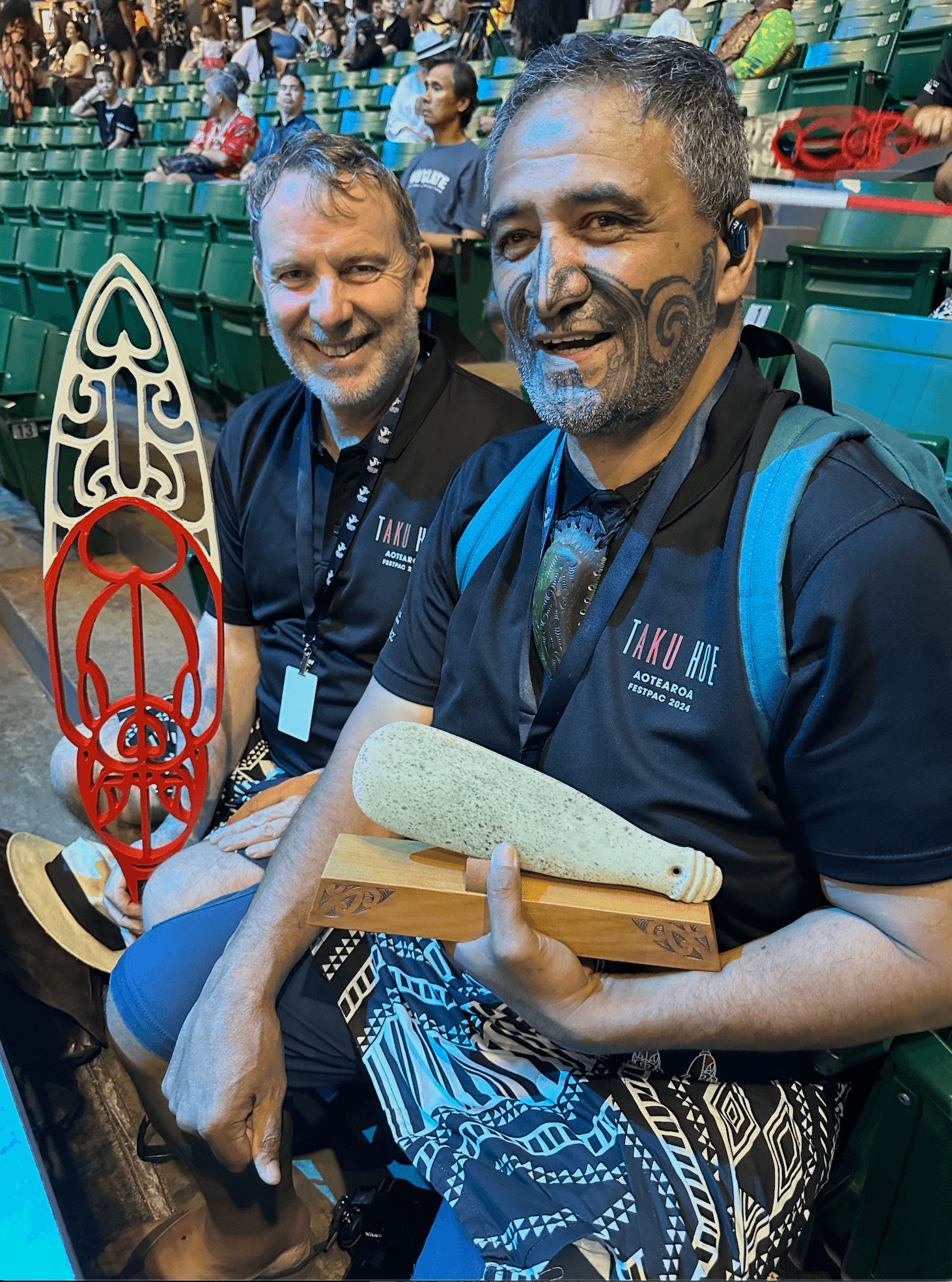
There have some notable success stories come out of CNZ's involvement in the sector - and under Wainwright's watch, it should be noted the role it has played in championing the arts in this country's darkest days.
One of those being the Christchurch earthquakes, where Wainwright says CNZ acted swiftly as virtually all of the city's buildings that hosted arts experiences were left broken within a day. But some of that mahi is only now coming to fruition.
"You know, good things take time - one of the things that we did there was to try and influence the system so that the arts had a solid place in the future through the Christchurch long term plan - anchor projects they were called. And it's interesting to me that on 2 May, the Court Theatre opens in the performing arts precinct in Christchurch.
"Like many theatres, the Court Theatre had become used to working in highly compromised spaces that weren’t fit for purpose and making do brilliantly. So the idea that for the first time in its over 50-year history, the Court Theatre will have a proper, beautiful fit-for-purpose space that will serve the theatrical community and the community of Christchurch at a much highly level than was possible before - that's a really exciting outcome. It's a long-term gain."
That's not the only response to an existential crisis that CNZ deserves credit for during the Wainwright era.
When COVID darkened our doorstep in early 2020 and brought the creative sector to a screaming halt, CNZ's emergency funding and support for artists and organisations stood out like a beacon.
"We were relatively nimble," Wainwright recalls, "I think we spoke to our Board maybe on the 20 March. You might remember that the government went from green light to red light incredibly quickly - it was very, very sudden.
"My colleagues did an heroic job and we had all of our new programmes up and running by 14 April. All of our previous programmes were based on business as usual, which is that there's going to be an opportunity for practitioners to bring work to an audience and then just like that, that was all over.
"So we changed everything just to support the livelihood of people in a very short time. Later on - because they're not quite as nimble as we are, quite a lot later on - The crown came in with resources which was really, really helpful. But there was a time there we had to move really quickly."
But when asked for his proudest moment while at the helm, Wainwright expressed "It was probably more the day-to-day things. It's easy to point to one-off things we might have done in a big response, but actually the thing that I take pride in is the care that I hear in the daily conversations that we have with people from the community, doing their best to support them. I see a lot of humanity and professionalism in those transactions."
Regrets
As Wainwright alluded to himself earlier, you can't get every call right. And there have been many that have led to public outcries from the creative community.
When asked if any regrets stick with him, Wainwright responds "There's always things that you wish you had done differently - and I suppose, they're the ones that you learn the most from.
"I know that at times, we haven't explained ourselves well enough," he explains.
"Our decision making is guided by peer assessment so it's not often our staff sitting in a room amongst themselves, weighing things up - it’s actually advice from the community and it's a terribly challenging thing to do.
"But I think certainly, from time to time, I wish we had been clearer and faster in our communication so people could understand better why we did what we did."
Wainwright continues "There's been other occasions too, where I've taken advice which I wish I'd take a little bit more time to reflect on - because weighing everything up, it was perhaps good advice, but I think there were other options.
"In any given year, there was probably $60-$70 million of decisions that go into their hundreds, if not thousands (of applications).There's a fair number of decision-making points.
"Personally, I wish I leant in a little harder, a little earlier - not that often, but just from time to time."
We Are Indigo controversy
Aside from the controversies surrounding funding which came thick and fast, one of the most contentious issues in recent times was around the 2022 decision to award the eye-watering $5.3 million Digital Arts Commissioning and Capability Service contract to an off-shoot of We Are Indigo - an organisation that was mired in its share of controversy.
Wainwright defends the service, noting that Aotearoa lags behind other countries when it comes to digital capability in the arts space and with the context of COVID's impact in consideration.
"I think that was the right initiative but why it changed very quickly was the context in which that initiative was rolled out - perhaps in hindsight, something a bit more modest might have been more appropriate. But you can't always anticipate the rapid changes and context that happen.
"If you think of how many people are now engaging with our arts and entertainment, the rise of digital platforms is an absolutely massive trend - so that's not one that I'm as troubled by, in terms of was it the right thing to do."
But most of the backlash wasn't so much on the service concept, rather that it was awarded to an organisation with a questionable reputation instead of the candidates already established and in-tune with the sectors needs.
"Yeah, I can understand that point of view - I get that," replies Wainwright. "We had to follow a prescribed tendering process and it was very exacting, But other things happen so we didn’t continue with that pilot (which meant $2.075m was paid out, rather than the full $5.3m).
"The choice of provider with a tendering process - you could have gone two ways because essentially, I guess the thing that was imbalanced was the technical expertise of building a digital capacity versus the expertise around the arts community.
"I appreciate that people had a range of views about that."
Is CNZ fit-for-purpose?
It's a question that has been raised from frothing anti-arts advocacy groups through to established arts organisations and disillusioned artists.
CNZ has been a staple in the sector for a long time and has many vocal supporters and has changed the fortunes of countless artists. But with the battle to hold onto funding coming from successive governments and predictions of a bleak financial future from analysts - what does the man who has been its figurehead for so long believe?
Wainwright states they are "absolutely valid questions that every organisation should be asking itself."
Given that the current government was elected on reducing expenditure from the Crown following COVID, Wainwright thinks "We're actually pleased that the Minister (Paul Goldsmith) has gone into bat for us and and held our funding. Because as you will well be aware, some parts of the cultural sector and many parts of the broader core government have had significant reductions and investment.
"Without the public investment that comes to us, the arts infrastructure of the country would be much, much, much, much, much thinner. There would be probably no Silo, no Basement, no ATC, no opera company, no orchestras - so those outcomes are really important."
He lists the many success stories that have been driven from Arts Council initiatives like The Arts Foundation, Arts Access Aotearoa and Objectspace, as well as delving into crowdfunding partnerships such as Boosted x Moana.
"The Arts Council is rehoning its strategy - that's happening now and I won't pre-empt that - but from the drafts that I've seen so far, that does open the door to firmly gripping some of the context of the day.
"The organisation's alert to some of the limitations of the current system and I think open to continuing to evolve and make improvements that meet the needs of the community as best we can, knowing that on the mixed funding model that we have, there's always going to be a range of players doing a range of complementary roles through local government, Foundation North, Central government and CNZ."
Wainwright's future
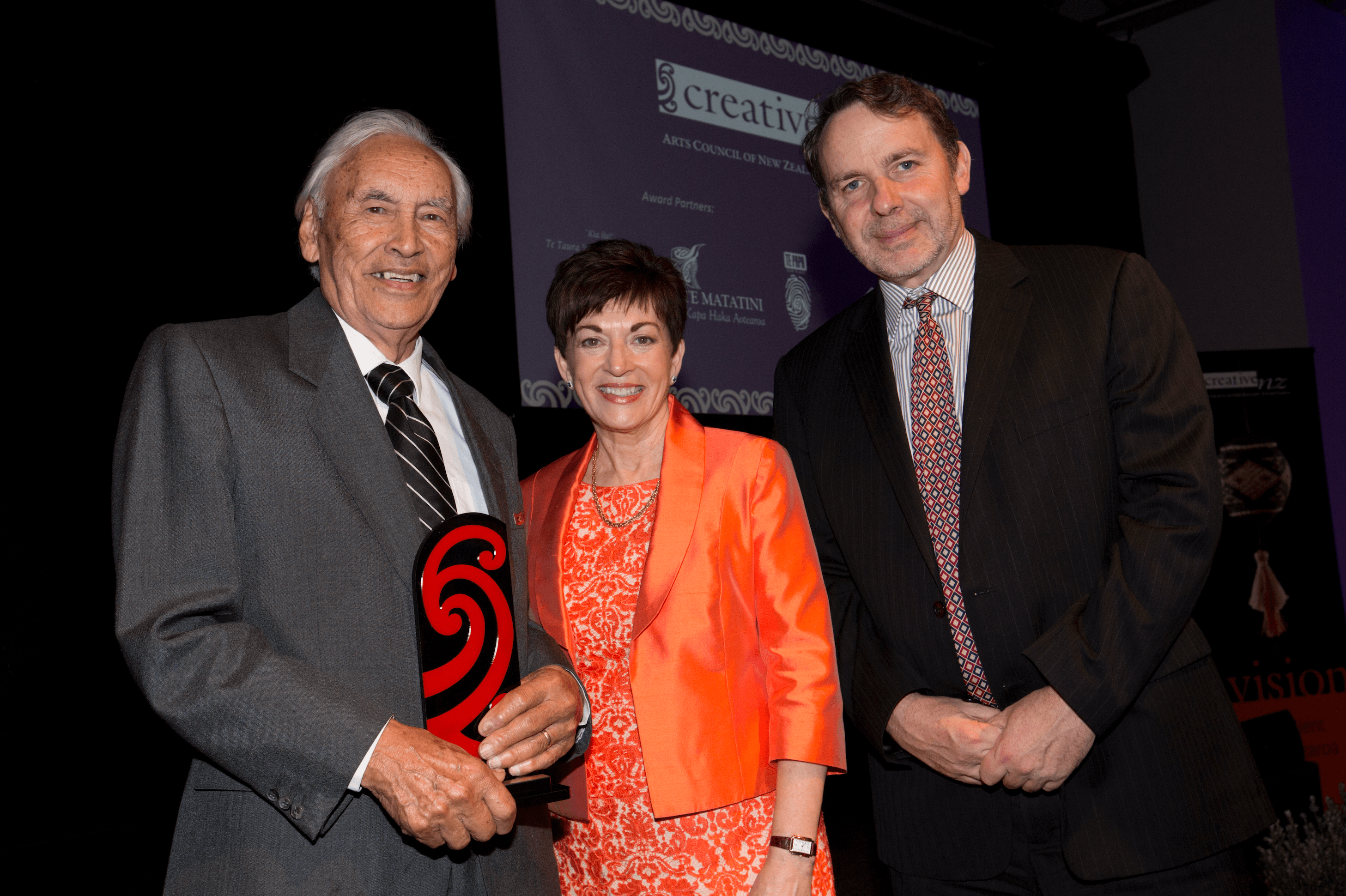
So what now for one of the most experienced leaders in the creative sector?
He's first turning his attention to supporting his family's businesses - working with his son on his construction business (it's in the genes, both Wainwright's dad and grandfather were plumbers with his son specialising in retaining walls) and supporting his wife with her own career ambitions.
"It's very different and I think I need a bit of fresh clean air, as they say in sailing, for a little bit. At my age, it's good to have a new chapter during your life."
He's also accepted a role on the board of National Army Museum - and hints he's not closing the door on returning to the creative sector in the future.
"My concrete hasn't dried on all that but I think the ethical and right thing to do - in the very short term - is to make a clean break, stand down for a little while so there's no kind of untidiness or conflict.
"Then I'll have a fresh fresh look at what fate serves me up.
"Certainly because it's my personal interest - as well as my professional interest - I will do something for sure. I just don't know exactly what that is at the moment."
Final address
When asked if he has any last remark he wants to offer the arts sector he's had at the forefront of his career thinking for over three decades, Wainwright referenced the Stockdale paradox - where you must have faith that, no matter your current difficulty, you will prevail.
“Even if things seem quite challenging, what I've seen over 30 years is that the arts community is full of really creative, talented people who find a way to bring their magic, their gifts of their organisations and their practice to the world.
"I think in these times, it's a vital service to the community and I just encourage people to keep on."
He points to CNZ itself as an example.
"In 1964, one year after we (the Arts Council) were set up, I think the budget was 100,000 pounds with three staff members delivering 90,000 pounds to the community. If you take a long term view to where we are now, we should be incredibly grateful that we're entrusted with - depending on the year -$70-$80 million of public money that we're able to support the community with. It is actually seismically different.
"I've always felt that it's a privilege to be spending the public's money and as the nature of the arts, sometimes what happens is going to challenge people and that's how it should be.
"But I would take great delight in what I see over the long term in in the growth of the industry and what it can offer to the community. I'm really confident that arc of progress will continue in the future because it matters so much to the public."